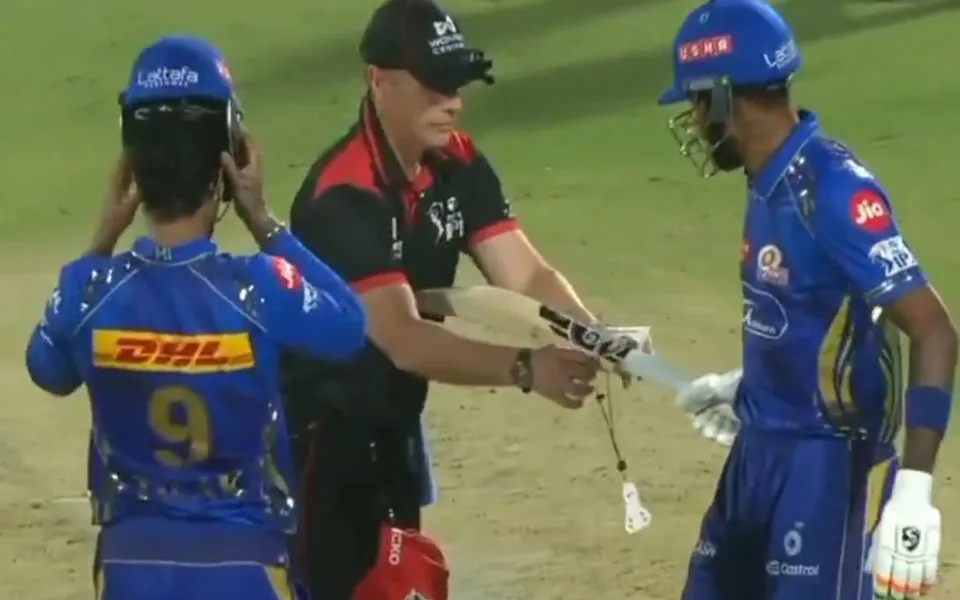On Sunday, April 13, in Match 29 of the ongoing Indian Premier League (IPL 2025) at the Arun Jaitley Stadium in Delhi, star all-rounder Hardik Pandya’s bat was put to the test. When the Mumbai Indians (MI) interrupted the Delhi Capitals’ (DC) tournament winning streak, they got back to winning ways.
After Suryakumar Yadav’s wicket fell in the first innings, Hardik Pandya came out to bat at number five.
Umpire Chris Gaffaney temporarily stopped the Baroda all-rounder as he was approaching the pitch to verify if the bat was passing through it with a gauge. To make sure it went through Pandya’s bat without any problems, he ran the gauge the full length of the bat.
It’s a method of determining bat breadth. This was the third time during the day that an umpire had stepped in to assess the bat’s width. Earlier, during Match 28 between the Rajasthan Royals (RR) and Royal Challengers Bengaluru (RCB) in Jaipur, the bats of Shimron Hetmyer and Philip Salt were also inspected.
The bat’s blade cannot be wider than 4.25 inches (10.8 cm), deeper than 2.64 inches (6.7 cm), or wider than 1.56 inches (4.0 cm). Additionally, it should be able to pass through a bat gauge, according to the IPL 2025 playing regulations.
After a strong start, Delhi falters as MI bowlers secure an exciting victory.
On Sunday, Hardik was only able to score two runs. However, thanks to outstanding contributions from Tilak Varma (59), Ryan Rickelton (41), Suryakumar Yadav (40), and Naman Dhir (38*), Mumbai managed to record a formidable total of 205/5.
On a pitch with low boundaries, Delhi was cruising in reply and needed just 87 runs off 59 balls with nine wickets remaining. They were bowled out for 193 in 19 overs, though, after a spectacular batting collapse. In his first game of the season, Karn Sharma was the best bowler for MI. In his four overs, he completed with figures of 3/36.




